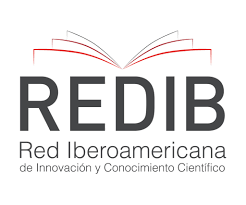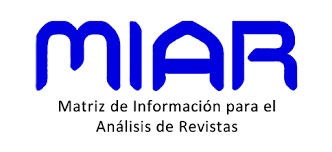Renaissance Lessons for a Digital Literacy: about Reading in Times of PDF
DOI:
https://doi.org/10.51743/cpe.378Keywords:
digital, education, humanism, reading, technologyAbstract
Reading has been one of the practices most altered by the immersion of digital technologies since the introduction of devices such as electronic books and tools such as search engines. In the light of the forms of reading practiced by Renaissance humanists, this paper seeks to establish a critique of the vices of digital reading and its relationship with educational processes. To this end, in a first section we expose some keys to understand reading in the Renaissance humanists by authors such as Johann Geiler or Francesco Petrarca, focusing on the question of pedagogy and the devotion of books. Subsequently, some of the dynamics of digital reading and its correspondence with the worsening of text comprehension, such as fragmented reading, intertextual dispersion or excessive speed in reading, are developed. Finally, recovering the criticisms collected from Renaissance thought, we propose some principles for a transformation of reading under the paradigm of digital humanism, focusing on scenarios such as the university and the social practice of reading.
Downloads
Global Statistics ℹ️
|
451
Views
|
281
Downloads
|
|
732
Total
|
|
References
Alighieri, D. (2006). Convivio. Ediciones Cátedra.
Boccaccio, G. (2020). El Decamerón (trad. por Benítez, E.). Alianza Editorial.
Brandt, S. (2011). La nave de los necios. Akal.
Bruni, Leonardo. (1424). Isagogicon Moralis Disciplinae.
Calvo Valdivielso, L. Bruni, Leonardo. En Diccionario Histórico de la traducción en España. https://phte.upf.edu/dhte/italiano/bruni-leonardo/
Carr, N. (2017). Superficiales: ¿Qué está haciendo Internet con nuestras mentes? Taurus.
Cavallo G. y Chartier, R. (2004). Historia de la lectura en el mundo occidental. Santillana.
Eco, U. (1993). Lector in fabula. Lumen.
Erasmo de Rotterdam. (2003). Sobre el Método de Estudio, Lectura e Interpretación de Autores. En R. B. Bond (Ed.), Opera omnia Desiderii Erasmi Roterodami (Vol. 1, pp. 127-138). North-Holland Publishing Company.
Erasmo de Rotterdam. (2002). Adagia, Adagio 3, Libro I. Salerno Editrice.
Erasmo de Rotterdam. (2011). Elogio a la locura (trad. por Santidrián, P.). Alianza Editorial.
Ficino, M. (2006). Tres Libros sobre la vida; de la vida sobria. Espasa Calpe.
Geiler, J. (2015). Die Ausburger Predigten (ed. Freienhagen-Baumgart, K. y Williams-Krapp, W.). Deutsche Texte des Mittelalters.
Grafton, A. (2004). El lector humanista. En Cavallo, Guglielmo y Chartier, Roger. (ed.). Historia de la lectura en el mundo occidental. Santillana.
Grafton, A. (1991). Defenders of the Text: The Traditions of Scholarship in an Age of Science, 1450-1800. Harvard University Press.
Johnson, M. (2020). Digital Humanism: The Next Stage of Human Evolution. Academic Press.
Leroy, P. (2008). Ethics in science and environmental politics. Inter Research Publisher.
Maquiavelo, N. (1990). Epistolario (1512-1527) (trad. por Mastrangelo, S.). Fondo de Cultura Económica.
Manguel, A. (2014). Una historia de la lectura. Siglo Veintiuno.
Manucio, A. (2008). Les Correspondants d’Alde Manuce: Matériaux Nouveaux d’Histoire Littéraire. (ed. por Pierre de Nolhac). BiblioBazaar.
McLuhan, M. (1994). Comprender los medios de comunicación: Las extensiones del ser humano. Paidós.
Moro, T. (2013). Utopía. RIALP.
Morozov, E. (2018). To Save Everything, Click Here: The Folly of Technological Solutionism. PublicAffairs.
Newton, A. E. (1922). A Magnificent Farce. The Atlantic Monthly Press.
Palmireno, J. L. (1557). De genere et declinatione nominum. De praeteritis et supinis praecensiones brevissimae et ad Ciceronianum loquendi genus accommodatae.
Petrarca, F. (2006). Res Seniles. Casa Editrice Le Lettere.
Petrarca, F. (2007). África. Dieterisch’sche Verlagsbuchhandlung.
Petrarca, F. (2014). Cartas. Espuela de Plata.
Petrarca, F. (2021). De la vida solitaria. Cypress Asociación Cultural.
Pico della Mirandola, G. (2006). Sobre la dignidad del hombre. Editorial Pi.
Postman, N. (2005). Amusing Ourselves to Death: Public Discourse in the Age of Show Business. Penguin books.
de Rojas, F. (2005). La celestina. Cátedra.
Sadurní, J. M. (22 de diciembre de 2022). Giovanni Boccaccio, precursor del humanismo renacentista. National Geographic, Biografías: https://historia.nationalgeographic.com.es/a/giovani-boccaccio_18817
Séneca. (2020). De tranquillitate animi. Carlo Signorelli Editore.
Downloads
Published
How to Cite
Issue
Section
License
The author reserves the rights (copyright) of the published works, and the journal encourages and allows their reuse, from the preprint. The works are published in the electronic edition of the journal under a license "Creative Commons Attribution / Attribution-NonCommercial 4.0 International Public License - CC BY-NC 4.0", and can be copied, used, disseminated, transmitted and publicly exhibited.
The author / s partially transfer the property rights (copyright) of this work for the printed and online editions, provided that:
- The authorship and original source of its publication (magazine, publisher and URL of the work) is cited.
- Are not used for commercial purposes.
- The existence and specifications of this user license are mentioned.
It also declares to have respected the ethical principles of research and to be free from any conflict of interest.
"C.P.E." encourages the authors and the scientific community to the maximum promotion and dissemination of the works in their final version through:
1) Your list of contacts (emails) and social networks (Facebook, Twitter, LinkedIn ...).
2) Institutional repository of your University and public repositories (Mendeley, Cosis ...).
3) Scientific social networks (ResearchGate, Academia.edu, Kudos ...).
4) Personal or institutional website, blog, etc.
5) Google Scholar, ORCID, ResearchID, ScopusID, Dimensions, PlumX ...
6) Printed copies purchased directly and sent to specialists for reading and subsequent citation if appropriate.




















1.png)
1.png)

1.png)





.png)
.png)

.png)
1.png)
1.png)
